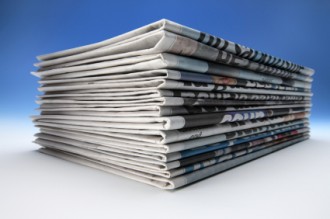While the draft of the Press Council of India's yet-to-be released report on the 'Paid News' scandal links that trend to earlier devices like 'Private Treaties' and Medianet, the Securities & Exchange Board of India (SEBI) had already written to the PCI a year ago, warning of the possible outcome of Private Treaties. Interestingly, the letter was from the Officer on Special Duty of SEBI's Integrated Surveillance Department.
The SEBI letter warned that "Private Treaties may lead to commercialisation of news reports since the same would be based on the subscription and advertising agreement entered into between the Media group and the company. Biased and imbalanced reporting may lead to inaccurate perceptions of the companies which are the beneficiaries of such private treaties."
"It has been observed that many media groups are entering into [these] agreements, called 'Private Treaties,' with companies which are listed or coming out with a public offer, for a stake in the company and in return providing media coverage through advertisements, news, reports, editorials etc." So wrote SEBI to the Chairman of the Press Council on July 15, 2009.
"The Press has the role of providing fair, unbiased news to the public and financial press has to play an independent role of providing crucial, timely and factual information to investors," SEBI wrote. "It is our concern that such agreements may give rise to conflicts of interest and may, therefore, result in dilution of the independence of the press vis-a-vis the nature and content of the news/editorials in the media of companies promoting such agreements."

Last week, the Election Commission of India directed chief election officers of all states to give serious attention to the paid news phenomenon which, it said, "is assuming alarming proportion as a serious electoral malpractice".

•
The Empire strikes back
•
Mass media: Masses of money?
•
Watching the watchdog
•
Paid news: Who pays the price?
After a series of stories in The Hindu on 'paid news,' particularly during the 2009 elections, the Press Council, taking note of the issue, asked the Election Commission of India for its opinion on the matter. The Press Council had already set up a two-man subcommittee to inquire into and prepare a report on the subject. The report of that committee is yet to be released. Their draft report ran into rough weather, with a few Council members opposed to naming names. (Which the report does extensively, though providing substantial space to the rebuttals and denials of those named.)
Last week, the Election Commission of India directed chief election officers of all states to give serious attention to the paid news phenomenon which, it said, "is assuming alarming proportion as a serious electoral malpractice, has been causing concern to the Commission in the context of conduct of free and fair elections." The 'paid news' trend now seems firmly identified as a corrupt practice. The ECI has called for "maximum vigilance" so that the incidence of paid news "in the context of elections is arrested."
Meanwhile, the blocked PCI report also links 'paid news' and 'private treaties. One of its authors, Paranjoy Guha Thakurta, said: "There is indeed a vital link between paid news and private treaties. One is in the political sphere [which is paid news]. And second, in the sphere of business and commerce [i.e. Private Treaties]." The draft report dwelt on the nature and extent of those links at some length . again naming names quite plainly. Thakurta also says that the Private Treaties were "robbed of some of their sheen during the 2008 financial crisis that saw stock market indices plummet." That's when 'paid news' came in as a device that bypassed tax laws while flouting electoral laws and norms. And which also worked for politicians who could now exceed the poll spending limits without fear of getting caught.
In its letter to the Press Council Chairman, SEBI worried that "though the Press Council has Norms of Journalistic Conduct, which require journalists to disclose any interest that they might have in the company about which they are reporting, no such requirement exists in case of media companies holding stake in the company which is being reported/covered."
The SEBI letter urges the Press Council "to take up this matter and consider the following:
-
Disclosures regarding stake held by the media company may be made mandatory in the news report/article/editorial in newspapers/television relating to the company in which the media group holds such stake.
-
Disclosures on percentage of stake held by media groups in various companies under such 'Private Treaties' on the website of such media groups be made mandatory.
-
Any other disclosures relating to such agreements such as any nominee of the media group on the Board of Directors of the company, any management control or other details which may be required to be disclosed and which may be a potential conflict of interest for media group, may also be made mandatory."
The authors of the Press Council inquiry in fact reproduced these recommendations in their report. However, owing to the resistance of a few PCI
members, the final report is yet to be released. SEBI concluded its own letter with these words: "As free and unbiased financial press is crucial for
the development of securities market, particularly with respect to aiding the small investors to take a well-informed decision, it becomes imperative
that steps be taken to address this issue at the earliest."























